Contents
- 1 Solar panel wire Connector Types
- 2 What are Solar Connectors?
- 3 Solar Panel wire Connector Types
- 4 Compatibility and Interchangeability
- 5 Safety Considerations
- 6 Cost and Efficiency Analysis
- 7 Conclusion
- 8 Frequently Asked Questions (FAQs)
- 8.1 Are all wire connectors compatible with all solar panels?
- 8.2 What are the advantages of waterproof connectors in solar panel installations?
- 8.3 Can I mix different types of connectors in my solar panel system?
- 8.4 Do I need special tools for installing wire connectors in my solar panel system?
- 8.5 How often should I inspect and maintain wire connectors in my solar panel system?
Solar panel wire Connector Types
Solar panel installations are becoming increasingly popular as individuals and businesses seek sustainable energy solutions. However, ensuring the efficiency and safety of these systems requires careful consideration of various components, including wire connectors.
In this article, we’ll explore different types of solar panel wire connectors, their features, applications, and considerations for selecting the right ones for your solar panel setup.
What are Solar Connectors?
Solar connectors are essential components used to link solar panels together and connect them to other parts of a solar power system. They facilitate the flow of electricity generated by the panels, ensuring efficient energy transfer and system functionality. Common types include MC4 connectors, MC3 connectors, T branch connectors, and waterproof connectors, each serving specific purposes in solar panel installations. These connectors play a vital role in establishing secure and reliable electrical connections in solar power systems.
Solar Panel wire Connector Types
MC4 Connectors
MC4 connectors are among the most widely used connectors in solar panel installations. They are known for their durability, weather resistance, and ease of installation. These connectors feature a snap-lock mechanism, making them reliable and efficient for connecting solar panels and other components in photovoltaic systems.
Despite their popularity, MC4 connectors have some limitations. They require special tools for assembly and disassembly, which can be cumbersome for DIY installations. Additionally, their compatibility is limited to other MC4 connectors, which may pose challenges when integrating with older systems or components using different connectors.
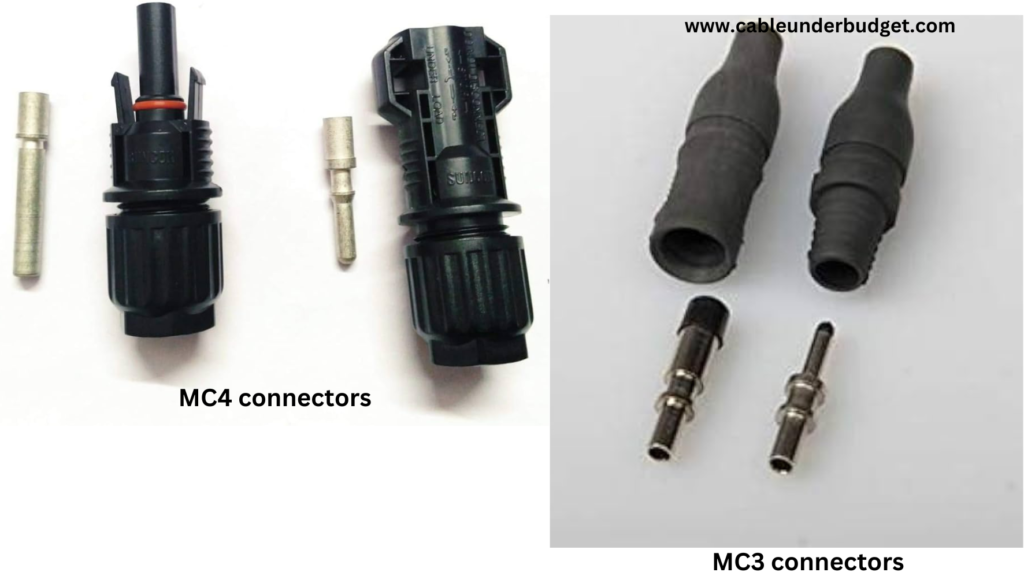
MC3 Connectors
MC3 connectors are similar to MC4 connectors but with slight variations in design and compatibility. They offer comparable performance and reliability, making them suitable alternatives for connecting solar panels and related equipment. However, unlike MC4 connectors, MC3 connectors are not compatible with MC4 connectors, which can affect system flexibility and expandability.
T Branch Connectors
T branch connectors are used to connect multiple solar panels in parallel, allowing for efficient distribution of power in larger solar panel arrays. These connectors feature a T-shaped design, with one input and multiple outputs, facilitating easy installation and cable management. T branch connectors are ideal for maximizing energy production and minimizing voltage drop in expansive solar panel systems.
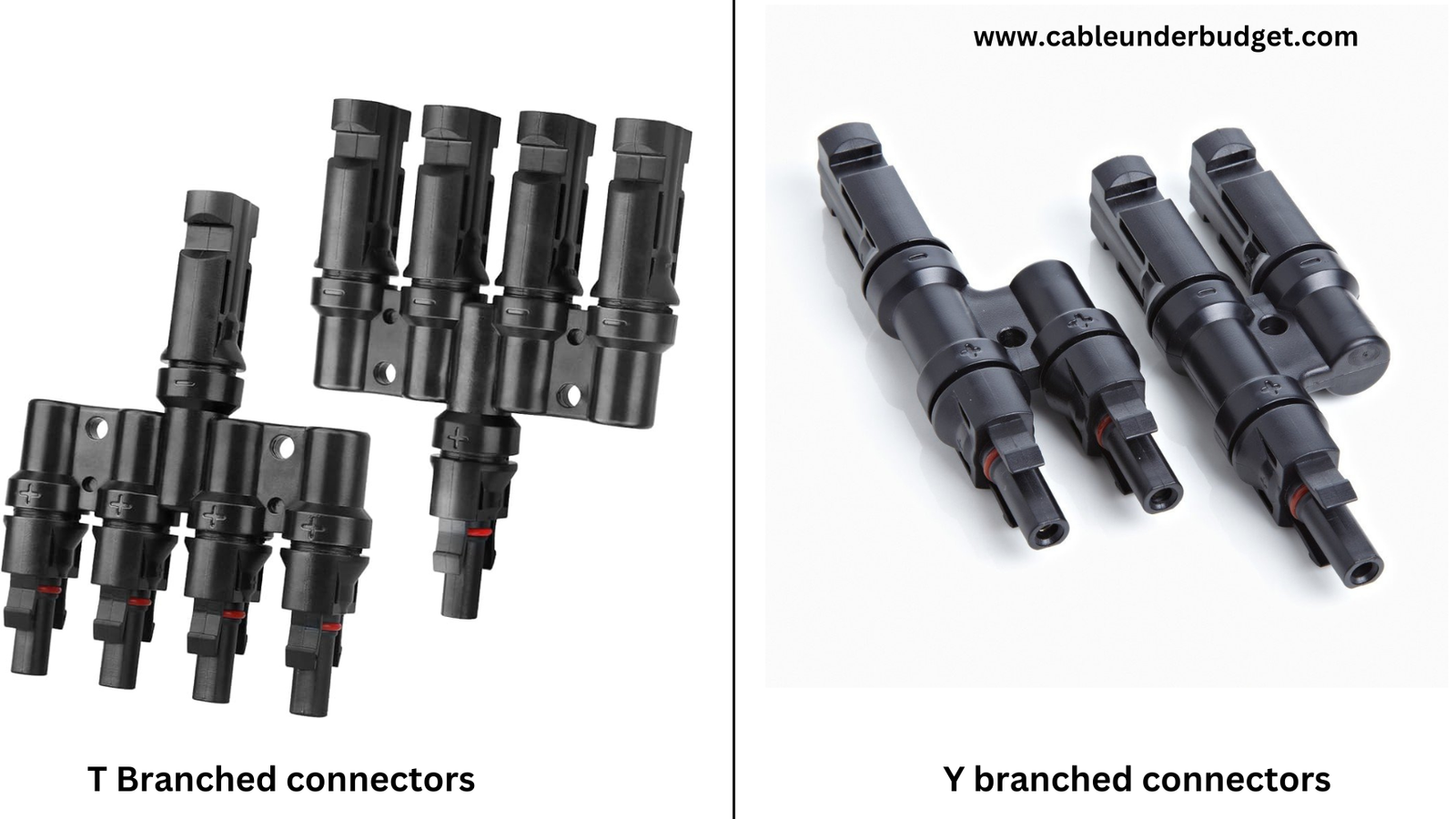
Y Branch Connectors
Y branch connectors are another type of connector used in solar panel installations, particularly in situations where panels need to be connected in series or parallel. They feature a Y-shaped design, allowing for easy branching of cables without the need for additional tools or equipment. Y branch connectors offer versatility and flexibility in system design, making them popular choices for residential and commercial solar projects.
TS4 Connectors
TS4 connectors are a type of solar panel wire connectors designed to integrate with the TS4 modular junction box system. They enable plug and play compatibility with various features such as monitoring, optimization, and safety functionalities. TS4 connectors offer flexibility and customization option for solar installations, allowing for easy installation and maintenance while enhancing overall system performance and reliability
Amphenol Connectors
Amphenol connectors are known for their high-quality construction, reliability, and performance in demanding applications. They are commonly used in industrial and commercial solar panel installations where durability and longevity are essential. Amphenol connectors come in various types and configurations to meet specific project requirements and industry standards.
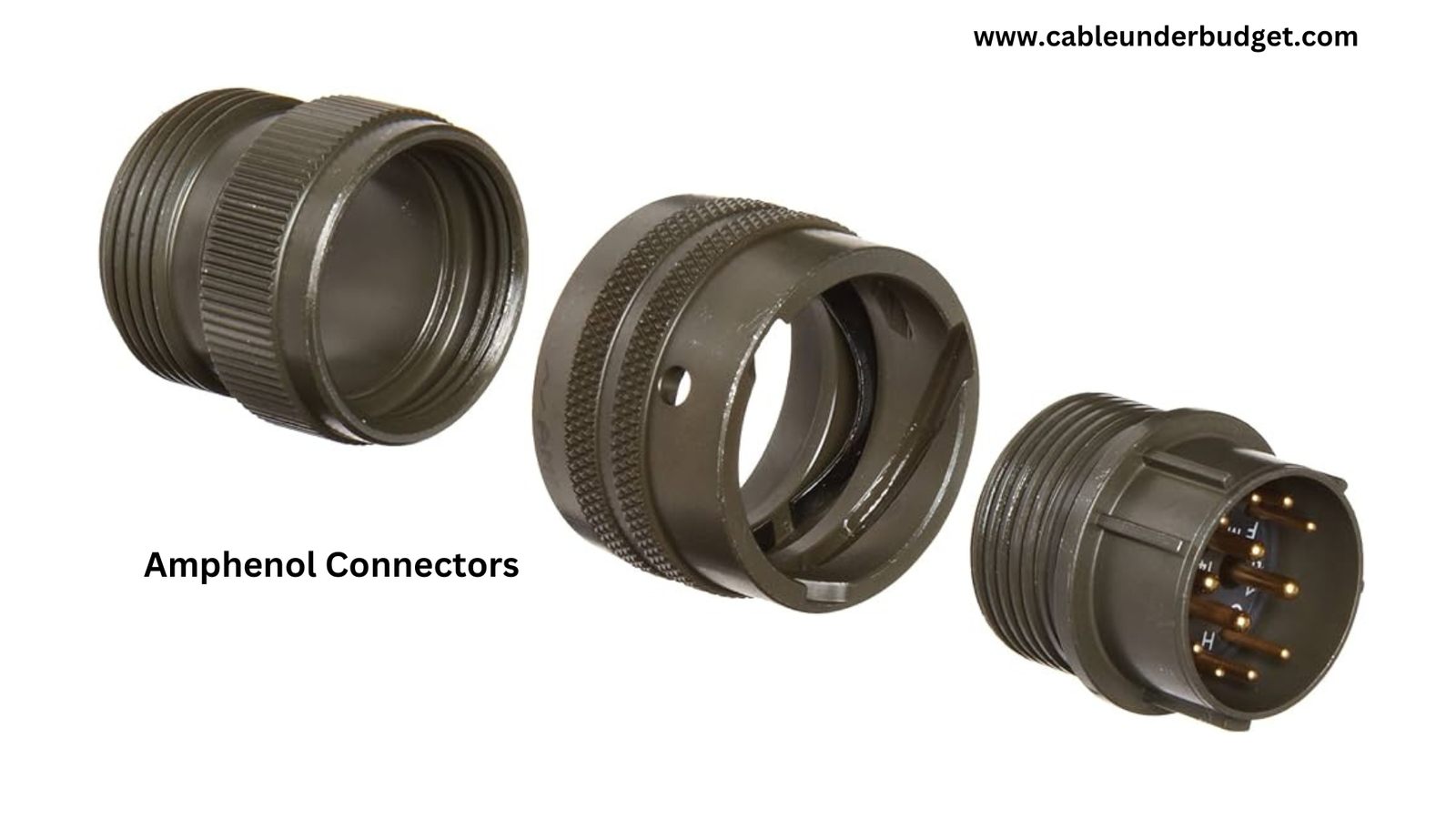
Tyco Solar Connectors
Tyco solar connectors, also known as Tyco Electronics, are renowned for their quality and reliability in solar installations. They offer secure connections, durability, and compatibility with various system components, making them popular choices for residential, commercial, and utility-scale solar projects.
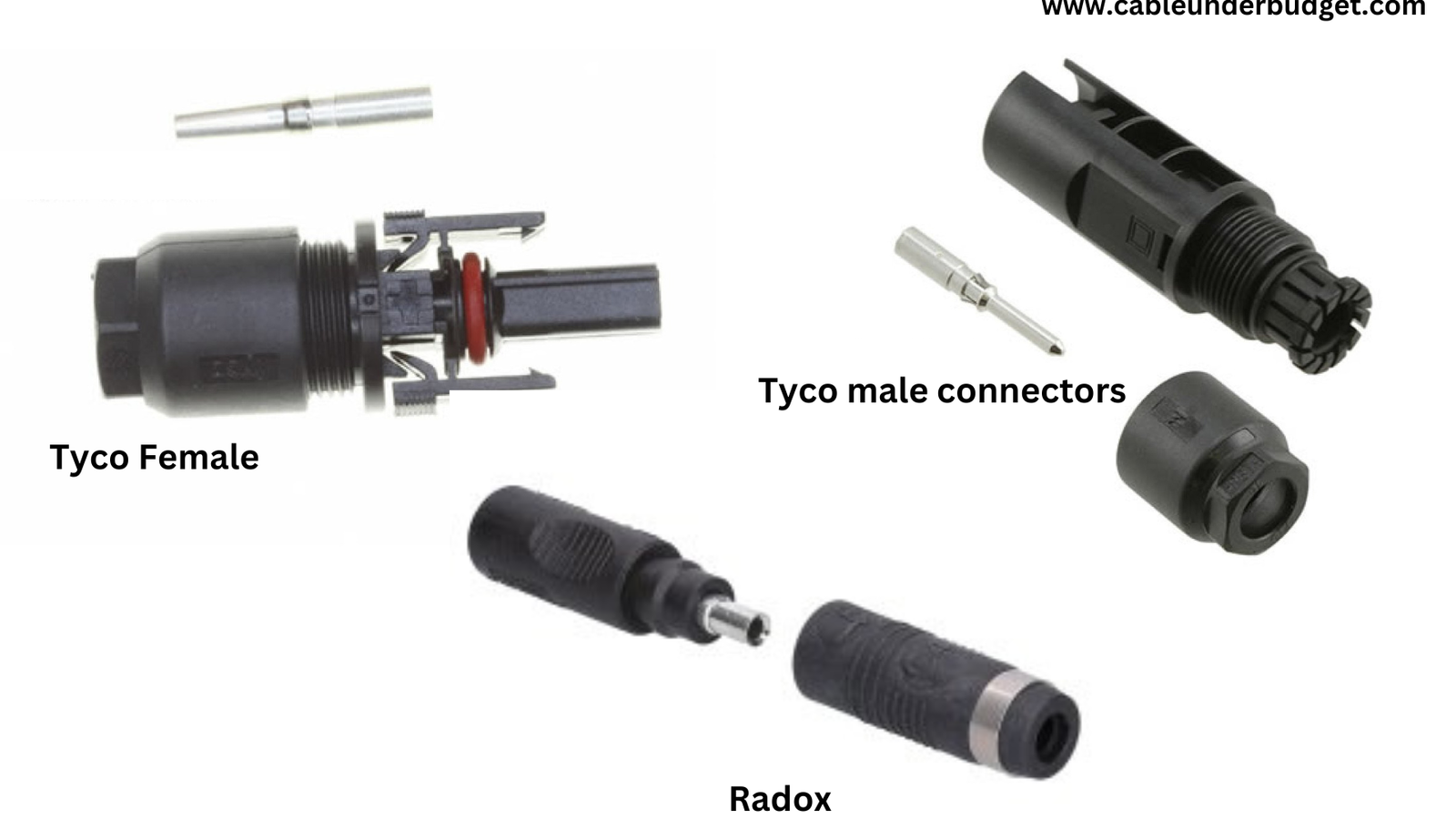
Radox Connectors
Radox connectors are highly regarded in the solar industry for their robustness and resilience in demanding environments. They feature a unique design that ensures secure connections and minimizes the risk of electrical faults. Widely used in solar panel installations, Radox connectors offer reliability and longevity, contributing to the efficiency and safety of solar power systems.
H4 Connectors
H4 connectors are commonly used in solar panel junction boxes to connect solar panels to charge controllers, inverters, and other components. They feature a robust design, high current-carrying capacity, and reliable performance in harsh environmental conditions. H4 connectors are compatible with a wide range of solar panel brands and models, making them versatile options for solar installations.
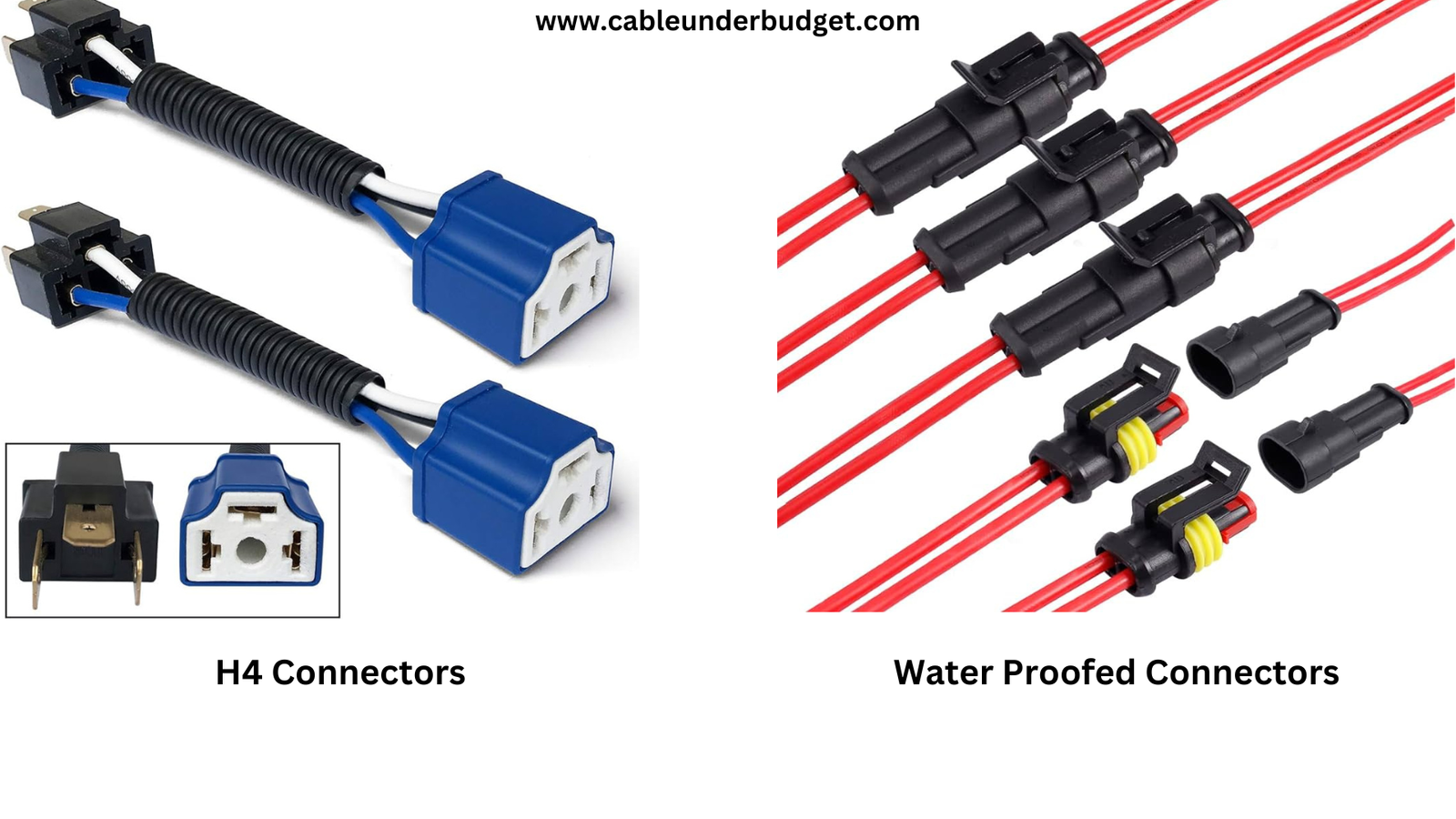
Waterproof Connectors
Waterproof connectors are essential for outdoor solar panel installations to prevent water ingress and corrosion, which can damage electrical connections and components. These connectors feature seals or gaskets that provide a watertight seal, protecting wires and terminals from moisture and environmental contaminants. Waterproof connectors are available in different sizes and designs to suit various installation requirements and environmental conditions.
Compatibility and Interchangeability
When selecting wire connectors for solar panel installations, it’s essential to consider compatibility and interchangeability with existing components and future expansion plans. Choosing connectors that are compatible with your solar panels, inverters, charge controllers, and other equipment will ensure seamless integration and optimal performance.
Safety Considerations
Safety should always be a top priority when working with solar panel wire connectors. Proper installation techniques, adherence to manufacturer guidelines, and compliance with local building codes are crucial for preventing accidents, fires, and electrical hazards. It’s essential to use insulated tools, wear appropriate personal protective equipment, and perform regular inspections and maintenance to ensure the safety and reliability of your solar panel system.
Cost and Efficiency Analysis
When evaluating wire connectors for solar panel installations, it’s essential to consider both cost and efficiency. While some connectors may have a higher upfront cost, they can offer long-term benefits in terms of reliability, performance, and durability. Cheaper connectors may save money initially but could lead to increased maintenance costs or system failures over time.
Conclusion
In conclusion, selecting the right wire connectors is crucial for ensuring the efficiency, safety, and reliability of solar panel installations. From MC4 and MC3 connectors to T branch and Y branch connectors, there are various options available to meet specific project requirements and preferences. It’s essential to consider factors such as compatibility, durability, weather resistance, and ease of installation when choosing wire connectors for your solar panel system. By prioritizing quality connectors and following best practices for installation and maintenance, you can maximize the performance and longevity of your solar panel setup. Remember to consult with industry professionals or reputable suppliers for guidance on selecting the most suitable connectors for your project.
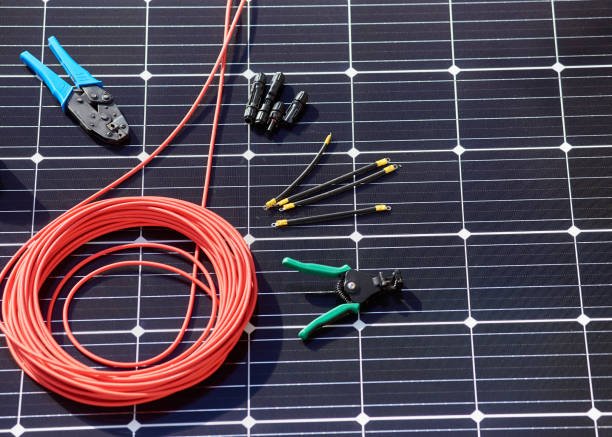
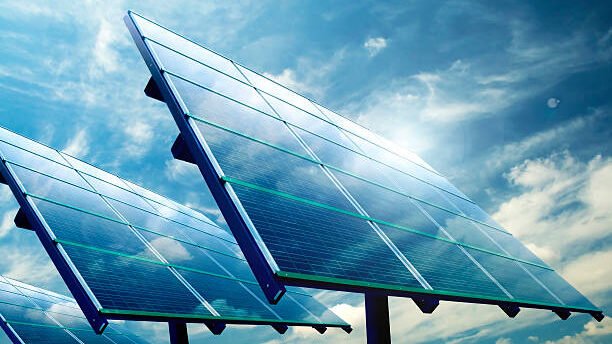
Pingback: Fiber Optic Connectors and Plug Types